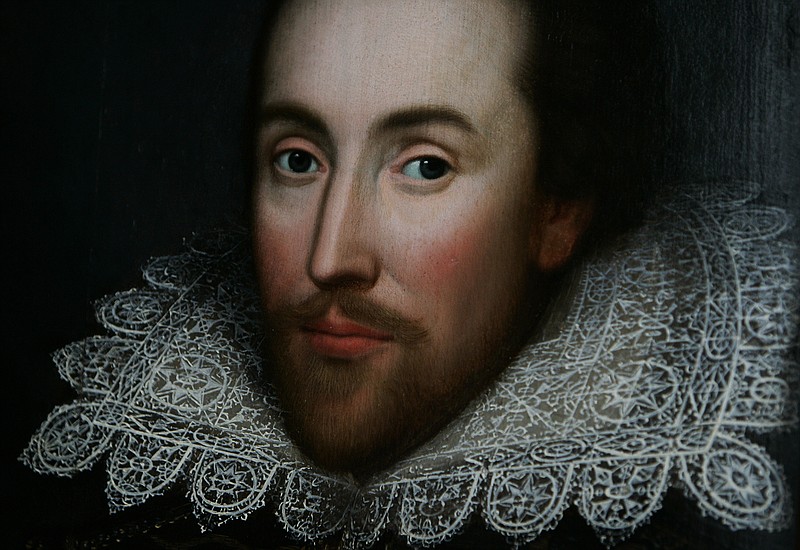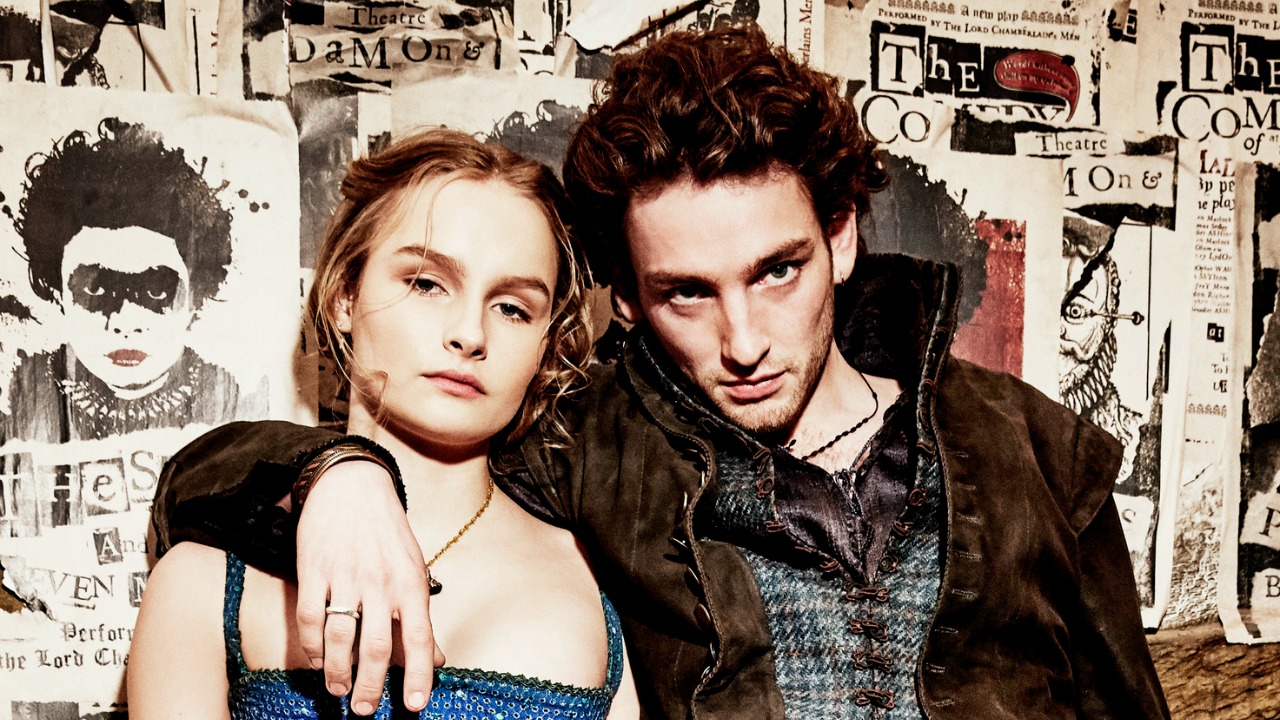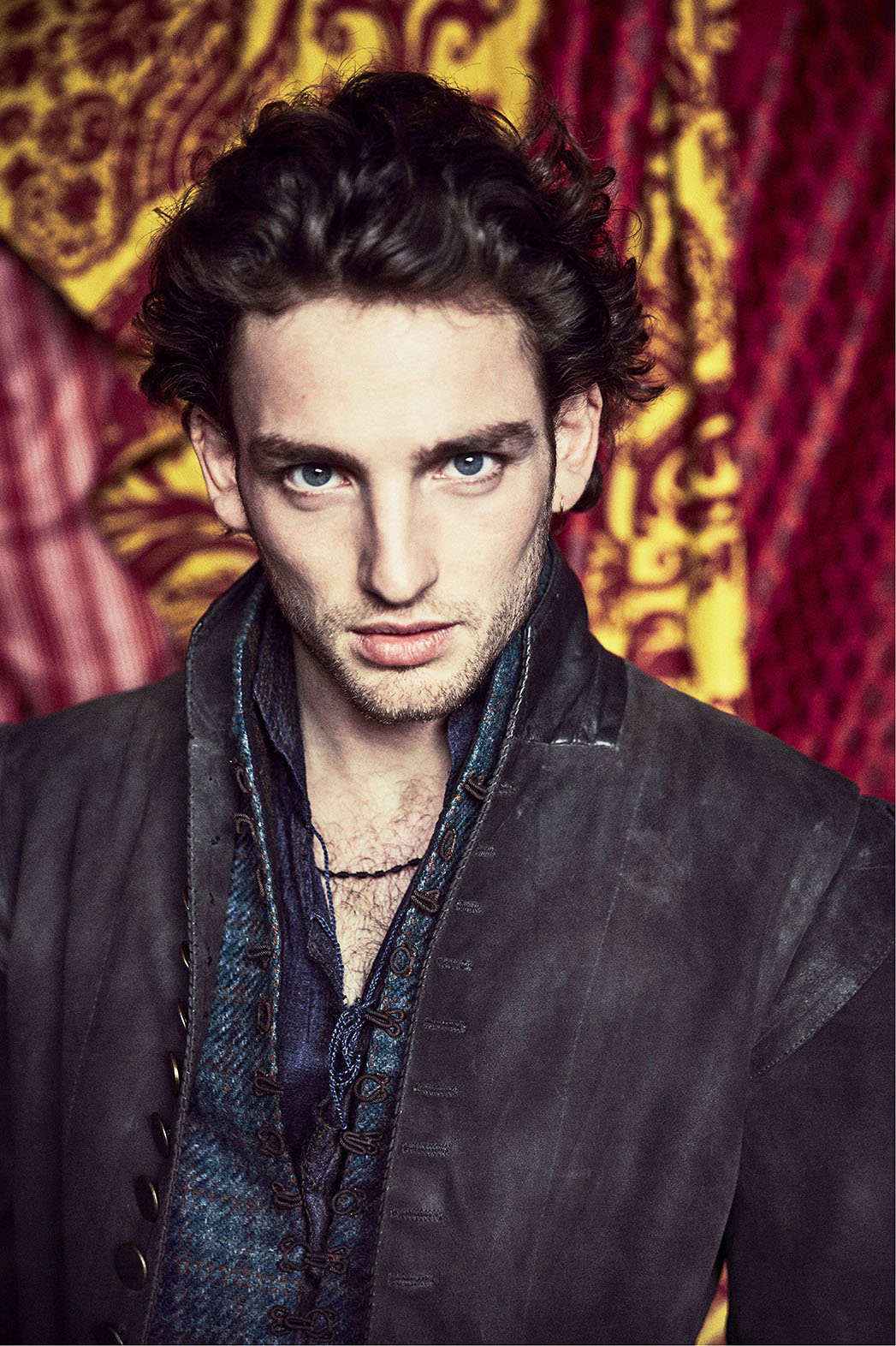If you thought you'd heard the last of William Shakespeare when you passed high school English, think again. The Bard is back this summer, wielding noticeable influence in TV pop culture.
First, ABC debuted the Shakespeare-inspired "Still Star-Crossed" in late May, which follows the Montagues and Capulets in the aftermath of the deaths of Romeo and Juliet. Young William Shakespeare - reimagined as an ambitious hipster chasing fame in London - was brought to life on TNT last Monday when "Will" was introduced.
They joined the already established Fox drama "Empire," supposedly based on "King Lear," and "House of Cards," whose Frank Underwood has been compared to Richard III by critics.
That's much ado about something.
Shows Inspired by the Bard
Television shows whose plots or main characters have been inspired by Shakespeare.› “Empire” (“King Lear”)› “Still Star-Crossed” (“Romeo and Juliet”)› “House of Cards” (“Richard III”)› “Star-Crossed” (“Romeo and Juliet”)› “Sons of Anarchy” (“Hamlet”)Source: Various internet sites
So what is the appeal? Why is it that 400 years after his death, Shakespeare's still influencing culture? What makes his work universal?
Chad Schrock, associate professor of English at Lee University in Cleveland, Tenn., says it's the Bard's uncanny knack for defining character, or what makes an individual tick.
"He figured out a way to get inside people's heads even when we can't see inside their heads onstage. What he did with soliloquies in particular (characters revealing their thoughts by talking to themselves), no one else had done before. In plays, he activates a wide variety of detailed and meaningful characters in order to ask questions about what it's like to be a person."
And that hooks his audience, Schrock explains, because Shakespeare gives few answers in his work. There is no 16th-century answer key. The audience must use the questions his characters pose to find their own answers.
"With his emphasis on individual character, he's particularly appealing to a hyper-individualistic time and place like ours," Schrock believes.
Schrock explains Shakespeare was a "shrewd businessman, in and out of the theater, and highly responsive to market trends."
"He'd be the kind of author who'd be tweeting and Instagramming, who'd be featuring cutting-edge popular music in his shows already. Highly contemporary updates of Shakespeare seem to fit his artistic mission," says the professor.
And that's TNT's depiction in "Will," the new series about an aspiring Will Shakespeare who leaves his wife and three children behind in search of fame in London. Television newcomer Laurie Davidson portrays this rakish starving artist, who insinuates himself into the lives of theater impresario James Burbage (Colm Meaney) and his daughter, Alice (Olivia DeJonge).
Will arrives wide-eyed and watchful in London as The Clash plays "London Calling," setting the tone for the punk-rock edge writers have cast over 16th-century England. Audiences are rowdy - an Elizabethan mosh pit - shouting for new material onstage, which Will immediately tries to appease with his first attempts at plays.
That he thinks quickly on his feet and is never at a loss for words is highlighted in a couplets throwdown between Will and another writer. It's a rap battle in iambic pentameter.
Locally, Scott Dunlap has reinterpreted three Shakespearean works into modern updates for performances at the Chattanooga Theatre Centre: "A Midsummer Night's Dream," "Macbeth" and "The Taming of the Shrew."
He has found that actors who came to those auditions were usually up on their Bardology - in fact, some were aficionados. He also found audiences responded positively when Shakespearean works were put into a setting and language they understood.
"Everybody immediately says, 'I don't like Shakespeare,' but that's usually because they don't understand it. Shakespeare's works are so poetic, and people get lost in the poetry. When you boil it down a little bit, they understand it better," Dunlap explains.
To be entertained by TV's fact-less reimaginings or not to be is the question. Are they detrimental to the Bard's legacy, or do they redeem themselves on the premise they might draw a new generation of readers?
"As a person, Shakespeare is one of our great literary mysteries," says Schrock. "We know so little about his views and opinions.
"A link between author and work often helps tie a literary work to the kinds of life experiences that inspire literature, especially for school-age audiences. That link illuminates how literature might help us understand our lives. I think 'Will' will be OK if the show is well done, as long as audiences get interested and move further in," Schrock says.
Contact Susan Pierce at spierce@timesfreepress.com or 423-757-6284.


